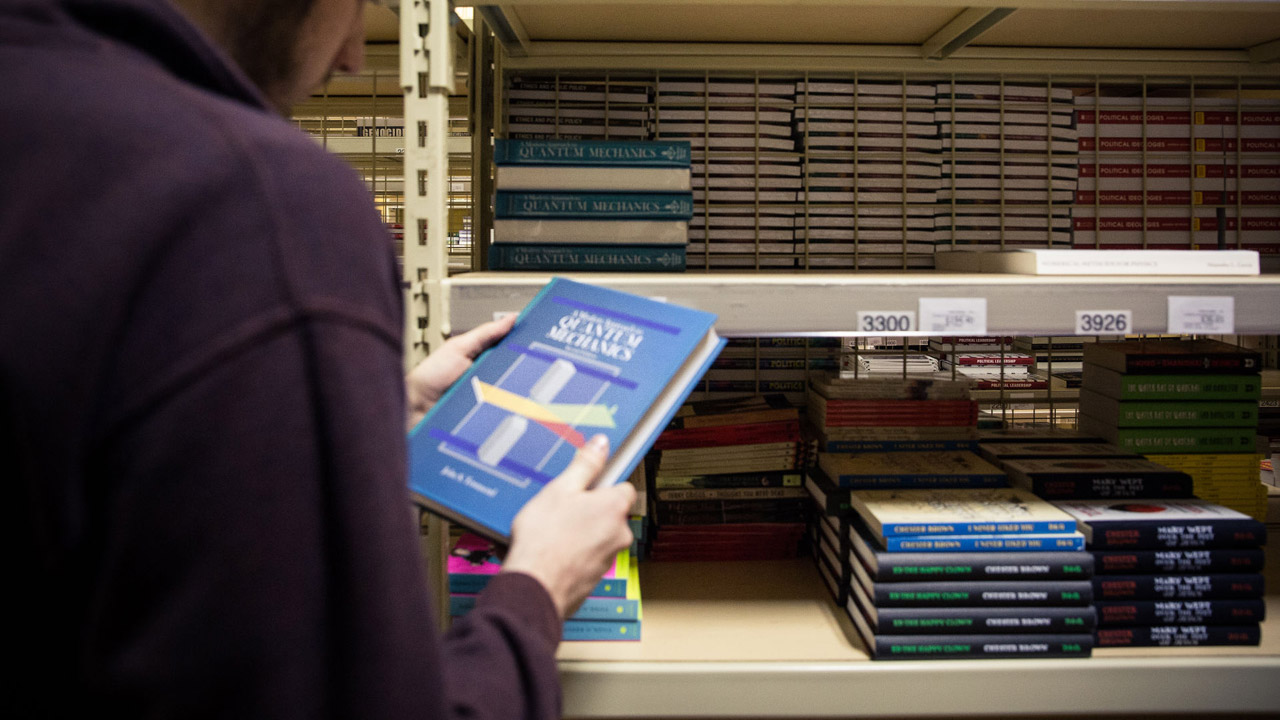Opinion: Textbook publishers need to lower prices now more than ever
 CREDIT: LIAM MCINNIS
CREDIT: LIAM MCINNISThe last thing we need to worry about right now is textbook prices.
Large publishing companies have been exploiting students for years — and now, with coronavirus killing the student budget, is the time for them to stop.
Students are forced to buy textbooks to pass many of their classes and this allows large, well-known publishers to price gouge: every new edition of a textbook costs students 12 per cent more on average.
According to Maclean’s, the average student spends $773 on textbooks annually, on top of tuition and ancillary fees. The Canadian Emergency Student Benefit, while helpful, doesn’t even cover the cost of tuition, so any and all textbook purchases are coming out of pocket.
Used textbooks are cheaper than new, but they can be difficult to find. Platforms like Amazon aren’t necessarily cheaper, especially once shipping is factored in, and used textbook Facebook groups like “Used Textbooks for Sale (UWO)” can be hit or miss. And even if you manage to find the textbook of your choosing, in the right edition, deciding to meet with a stranger to get the book is not everyone’s prerogative during a pandemic.
Some course materials even have specific access codes that prevent resale — each year the code changes, and students must buy new, no questions asked.
Libraries are also a conventionally good place to source free books, but when you attend a post-secondary institution with tens of thousands of students vying for the same textbooks, suffice to say there are not enough to go around. And with the pandemic severely limiting students’ ability to access library materials, textbooks are more elusive than ever.
So if you want a physical textbook this year, there is a very real chance you will have to bite the bullet and purchase new.
There is another option for cash-strapped students out there, but it isn’t a pretty one. Online textbooks are cheaper than physical ones by a substantial margin. In one of my courses this year, the physical copy is $117 at The Book Store whereas the rentable etextbook is less than half, at $57.
But in this era of Zoom lectures, the last thing we need is to spend more time on our screen. Screen time has been proven to impede sleep, communication skills, vision and more.
Our generation is already virtual — between Netflix, Instagram and TikTok, we lived on the internet long before classes went online. Factor in leisure time and studying on top of regular classes and students are bound to feel the long-term repercussions.
Publishing companies need to stop price-gouging physical textbooks and profiting on the backs of a population that is already struggling. Physical textbooks should be sold at a reduced rate for those who need it, not just those who can afford it.
Editorial opinions or comments expressed in this online edition of Interrobang newspaper reflect the views of the writer and are not those of the Interrobang or the Fanshawe Student Union. The Interrobang is published weekly by the Fanshawe Student Union at 1001 Fanshawe College Blvd., P.O. Box 7005, London, Ontario, N5Y 5R6 and distributed through the Fanshawe College community. Letters to the editor are welcome. All letters are subject to editing and should be emailed. All letters must be accompanied by contact information. Letters can also be submitted online by clicking here.















